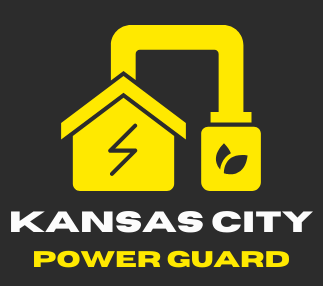
Standby Whole House Generator in Roeland Park KS
Enjoying the warmth of a close-knit community and the ease of suburban living often comes with the occasional challenge of power outages that can disrupt daily activities and cause unnecessary stress. To keep your home comfortable and protected during these outages, investing in a whole-house generator is a smart choice. While portable generators might offer a quick fix, a whole-house generator provides greater reliability, power, and convenience. In this guide, we'll explore the differences between whole-house generators and portable ones, outline the installation process, highlight the benefits, and review the maintenance needed to keep your generator running smoothly.
Installation Process
Installing a whole-house generator begins with a professional assessment of your home's power needs. An installer will evaluate the size of your home, the essential systems you want to keep running during an outage, and your available fuel options. This assessment ensures that the generator you choose is neither too large nor too small for your home, providing the right amount of power without wasting energy.
Choosing the Location
After determining your power needs, the next step is selecting a suitable location for the generator. Typically, it is installed outside, near your home’s electrical panel. The location must comply with local building codes and safety regulations, ensuring that the generator is placed at a safe distance from windows and doors to prevent exhaust fumes from entering your home.

We will get back to you as soon as possible.
Please try again later.
Electrical and Fuel Connection
Once the location is selected, the generator is connected to your home's electrical system and fuel supply. This process usually involves installing a transfer switch, which automatically switches your home's power source from the utility to the generator when an outage occurs. The fuel supply, whether natural gas or propane, is then connected to ensure the generator has a continuous fuel source.
Benefits of a Whole House Generator
The most obvious benefit of a whole-house generator is that it provides continuous power during an outage, keeping all your essential systems and appliances running smoothly. This is particularly important in Roeland Park, where power outages can disrupt not only comfort but also safety.
Increased Home Value
A whole house generator can increase your home's value, as potential buyers often view it as a significant asset. In areas prone to power outages, a backup power system can be a major selling point, making your home more attractive in the real estate market.
Safety and Convenience
The automatic operation of a whole-house generator offers unparalleled safety and convenience. You don't have to worry about running extension cords or refueling a generator in the middle of a storm. The generator takes care of everything, providing peace of mind.
Protection for Your Home
A whole-house generator protects your home from the risks associated with power outages, such as frozen pipes in winter, spoiled food, and damage to electronics. It also reduces the risk of electrical surges when power is restored, protecting your appliances and devices.
Maintenance
To ensure your generator remains in top condition, regular maintenance is essential. This includes checking the oil, filters, and battery, and running periodic tests to ensure the system is ready when you need it. Most manufacturers recommend a professional inspection at least once a year to keep your generator running smoothly.
A whole-house generator is a valuable investment for any homeowner in Roeland Park, KS. Unlike portable generators, which require manual operation and provide limited power, a whole-house generator delivers automatic, continuous power to your entire home. From the ease of installation to the peace of mind it provides, a whole-house generator ensures that you and your family are protected from the unpredictable nature of power outages.
Let's Connect!
We offer expert services in standby whole-house generators, ensuring your home stays powered during outages. Our team provides professional installation, maintenance, and support, delivering peace of mind to homeowners. Hire us today for reliable backup power solutions tailored to your needs.